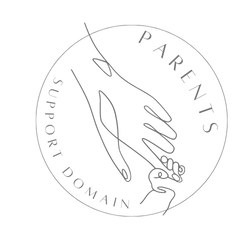The Overlooked Caregiver
The Overlooked Caregiver - A Mother's Journey in Balancing Baby's Health and Her Own Well-being
The overlooked caregiver – Becoming a mother is one of life’s most rewarding experiences, yet it can also be one of the most challenging. From the moment your baby arrives, your world changes, and your focus shifts entirely to their well-being.
You find yourself pouring every ounce of energy into ensuring your newborn is healthy, happy, and thriving. However, in the midst of this all-consuming responsibility, it’s easy to overlook an important aspect of the equation: your own health and well-being.
While your baby’s needs are paramount, it’s essential to remember that you, too, need care and attention. Neglecting your own health can lead to burnout, stress, and even long-term physical and mental health issues, which can ultimately affect your ability to care for your child.
This article explores the importance of self-care for new mothers and highlights the portable services that can help you maintain your well-being during this demanding time.

The Demands of Motherhood
The early days of motherhood are often a blur of sleepless nights, round-the-clock feedings, and endless diaper changes. Your baby relies on you for everything, and the instinct to protect and nurture them is incredibly strong. You want to be there for every moment, ensuring that your baby is comfortable, safe, and well-cared for.
However, this level of dedication can come at a cost. Many new mothers find themselves running on empty, putting their own needs on the back burner. It’s easy to skip meals, miss out on sleep, and ignore physical discomfort when your baby’s needs seem so much more pressing. Over time, this can lead to exhaustion, both physically and emotionally.
It’s important to recognise that caring for yourself is not a luxury—it’s a necessity. When you neglect your own health, it becomes harder to care for your baby effectively. A healthy, well-rested mother is better equipped to meet the demands of motherhood and provide the best possible care for her child.
The Physical Toll of Motherhood
Pregnancy and childbirth are physically demanding experiences, and the postpartum period can bring its own set of challenges. Common issues include back pain, pelvic discomfort, and fatigue, all of which can be exacerbated by the physical demands of caring for a newborn. Lifting and carrying your baby, bending over to change diapers, and breastfeeding can all put a strain on your body, especially if you’re still recovering from childbirth.
Ignoring these issues can lead to chronic pain and other long-term health problems, making it even more difficult to care for your baby. That’s why it’s essential to address any physical discomfort early on and take steps to support your recovery.
Embracing Portable Services for Self-Care
One of the biggest challenges for new mothers is finding the time and energy to care for themselves. Between caring for a newborn and managing household responsibilities, the idea of scheduling and attending appointments can feel overwhelming. Fortunately, there are a variety of portable services available that can bring care directly to your home, making it easier to prioritise your health without sacrificing time with your baby.
- Mobile Physiotherapy: Mobile, also known as in-home physiotherapy, is an invaluable service for new mothers dealing with postpartum discomfort. A physiotherapist can come to your home to assess your physical condition and provide personalised treatment plans to help you recover from childbirth. Whether you’re experiencing back pain, pelvic floor issues, or general fatigue, mobile physiotherapy can help you regain your strength and alleviate discomfort, all from the comfort of your own home.
- Mobile Massage Therapy: Massage therapy is another excellent option for new mothers. The physical and emotional stress of caring for a newborn can lead to muscle tension, headaches, and overall fatigue. A mobile massage therapist can visit your home and provide a relaxing and rejuvenating massage tailored to your needs. Regular massages can help alleviate physical tension, reduce stress, and promote better sleep, which is crucial for your overall well-being.
- In-Home Personal Training: For mothers looking to regain their pre-pregnancy fitness levels or simply stay active during the postpartum period, in-home personal training is a convenient and effective option. A personal trainer can design a workout plan that suits your individual needs and fitness level, focusing on areas like core strength, flexibility, and endurance. By working out at home, you can incorporate exercise into your routine without needing to leave your baby or find childcare.
- Mobile Beauty Services: Looking after your appearance can do wonders for your self-esteem, especially during a time when you might be feeling a little worn out. Mobile beauty services, such as haircuts, manicures, or facials, can bring a touch of pampering to your home. These services allow you to take a break, relax, and feel more like yourself again without the need to venture out. A little self-care in the form of beauty treatments can lift your spirits and help you feel refreshed.
- Mobile Counseling and Therapy: The emotional rollercoaster of new motherhood is something many women experience. Feelings of anxiety, overwhelm, or even postpartum depression are not uncommon. Having access to a mobile counsellor or therapist can make a significant difference in your mental health. These professionals can provide support, guidance, and coping strategies to help you navigate the emotional challenges of motherhood. The convenience of in-home sessions ensures you can prioritise your mental health without the stress of travelling to appointments.
- Grocery and Meal Delivery Services: Nutrition is a key component of self-care, but finding the time to plan, shop for, and prepare healthy meals can be difficult when you’re caring for a newborn. Grocery and meal delivery services can help by bringing fresh, nutritious food directly to your door. Many services offer pre-prepared meals or meal kits that require minimal preparation, allowing you to eat well without the added stress of meal planning. This ensures you’re getting the nourishment you need to stay healthy and energised.
The Emotional Aspect of Self-Care
While physical health is crucial, it’s also important to address the emotional and mental aspects of self-care. The postpartum period can be an emotional whirlwind, with new mothers experiencing a wide range of feelings, from joy and love to anxiety and overwhelm. It’s important to acknowledge these emotions and seek support when needed.
Connecting with other new mothers can be incredibly beneficial during this time. Whether through local groups, online communities, or even virtual meetups, sharing your experiences with others who are going through similar challenges can help you feel less isolated and more understood. This sense of camaraderie can be a valuable source of support and encouragement.
In addition to social support, it’s important to take time for yourself, even if it’s just a few minutes each day. This could be as simple as taking a relaxing bath, reading a book, or practising mindfulness exercises. These small moments of self-care can help you recharge and manage the stresses of motherhood.
Finding Balance in Motherhood
Motherhood is a journey that requires finding balance—between caring for your baby and caring for yourself, between meeting the demands of the day and taking time to recharge. It’s a journey that requires patience, self-compassion, and the willingness to ask for help when you need it.
As you navigate this new chapter of your life, remember that taking care of yourself is not just important—it’s essential. By prioritising your health and well-being, you’re ensuring that you have the strength, energy, and resilience to care for your baby in the best possible way. Embrace the support available to you, whether through portable services like mobile physiotherapy or by leaning on your support network.
In doing so, you’re not just investing in your own well-being; you’re also creating a strong foundation for your baby’s health and happiness. After all, a happy, healthy mother is the cornerstone of a happy, healthy baby.



